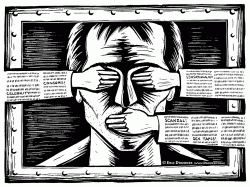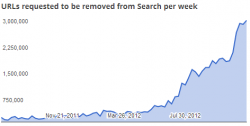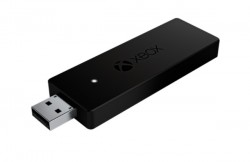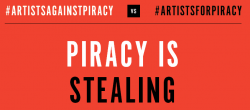Not a very long WNR today, felt a bit too depressed while writing the two main copyright stories this week to write too much. But you have to admire the lobbying efforts of Hollywood – they have reach as far as Australia, and closer to (their) home, reach that’s powerful enough to cause massive disruption to how domain names work on the Internet. This is not what I’m depressed about though. No, it’s the way how efficient Hollywood can be at getting things done, and the fact that they’re doing all the wrong things, that’s making me feel like a sad panda today.
Still, as they say, the show must go on, and so here’s this week’s news stories.
![]()
The MPAA is lobbying the Internet’s naming authority on changes that could make it easier for cyber criminals to steal the identity of businesses. It’s all part of the strategy by rights-holder groups to make it harder for domain registrants to protect their identities via domain privacy services. Groups like the MPAA says that this makes it more difficult for them to find information on the people who own domains linked to piracy, and the Internet’s naming authority, ICANN, appears to be buckling under the intense lobbying pressure to do something on this front. ICANN has released a report which proposes to ban domain privacy services for any domains used for commercial reasons.
While this would definitely make it easier for the MPAA to get domain ownership details, assuming the details aren’t faked (although ICANN has a rule that allows registrars to suspend domains if they suspect the details are fake), they can already do so easily via DMCA requests.
But by no longer allowing businesses to use domain privacy tools, digital rights groups and domain registrars say that it could allow cyber criminals to harvest domain data, which could lead to phishing attempts and even identity theft. Namecheap, one of the biggest domain registrars (and one of the good guys, who did a lot in protesting against SOPA), has also expressed concern about these proposed changes and have even mass emailed their own customers to ask them to try and stop these changes.
So once again we have the MPAA and their ilk trying to mess with the Internet, make it worse for everyone, just so they can have it a tiny bit easier time of it in their futile crusade against piracy.
Speaking of futile, Australia’s parliament has passed controversial changes to copyright law that grants private companies the avenue to seek a nation-wide censorship of websites that they disagree with. Australia now joins a small exclusive club of countries that censors the Internet, all in the futile attempt to stop the piracy problem (without addressing issues such as availability and pricing).
To make matters worse, the language contained in the passed legislation is so vague, that I and many others fear that the law will be abused by private companies to their own end. The language says that website whose “primary” purpose is to “facilitate” piracy will be targeted, but these terms are not defined clearly enough, according to critics. The law could also be interpreted in a way that would be eventually used to target VPN providers.
In other words, the Australian government (with bi-partisan help from the opposition) has just given Hollywood what they want – we’ll see if blocking The Pirate Bay (a block that can be easily bypassed by anyone that cares), which will happen sooner rather than later, will have any effect on piracy without addressing the high pricing and poor legal availability of content in Australia.
![]()

HDR promises to make everything brighter, better – but you need HDR content plus a 4K TV capable of displaying HDR
With 4K TV sets quickly approaching mainstream status, TV manufacturers are already on the look-out for the next best thing. And HDR, or high dynamic range, may be it. For those that don’t know, this essentially increases the difference between the minimum and maximum brightness in a scene, giving it a more dynamic (and therefore, better looking) picture. This involves both an encoding process to encode the movie with HDR information in it, as well as a display technology that produces TVs capable of displaying the increased dynamic range.
HDR capable TVs are still somewhat rare, and content is even rarer, although if you’re an Amazon Prime subscriber, you’re in luck, as they’ve just become the first streaming platform to offer HDR streaming, for free. It’s only limited to Amazon’s original series ‘Mozart in the Jungle’, for now, but you can bet the likes of Netflix won’t be far behind with their own HDR content (especially since the company has already stated the importance of HDR in the past).
Another first, but for another streaming platform. HBO Now is just starting out in the streaming game, but already, HBO’s standalone OTT product may be cutting its exclusive ties with the cable operators. HBO will air the tennis TV movie ‘7 Days in Hell’ on its own HBO Now platform before it airs on its cable channel. It’s become increasingly clear that streaming is fast approaching being a “first air” platform, rather than just showing left-overs from linear TV – it reflects the changing ways people are watching content these days.
——
Well looks like that’s it for another week. Hope you’ve enjoyed this latest edition of the WNR, see you next week!












